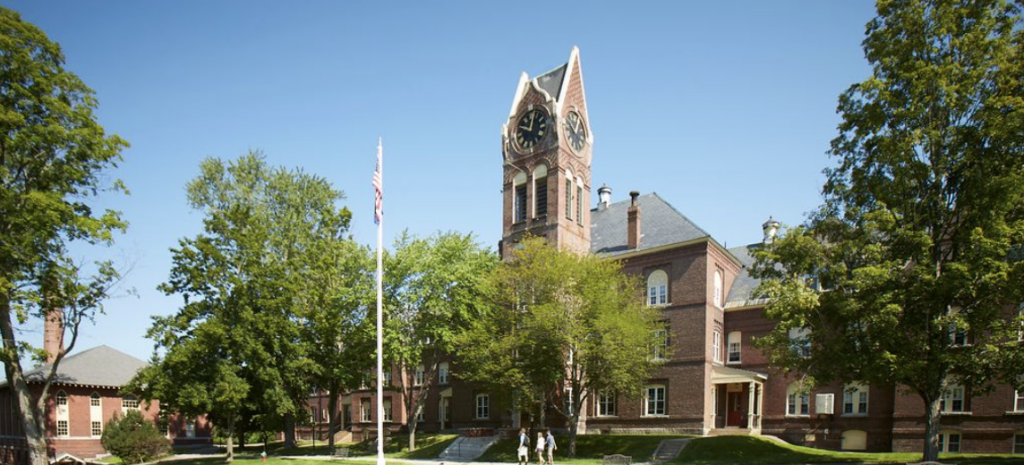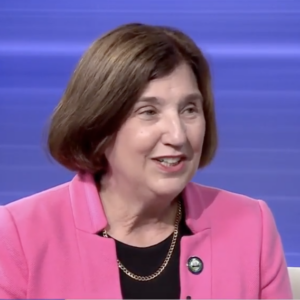Democratic candidate for governor and Executive Councilor Cinde Warmington is an outspoken opponent of school choice who pledges to kill New Hampshire’s popular Education Freedom Account (EFA) program. That includes effectively kicking kids out of the education options they are currently using.
EFAs allow families who earn no more than 350 percent of the federal poverty level to use the state portion of their children’s school funding to make their own education choices. Warmington wants to take away that choice.
“We don’t take taxpayer dollars to subsidize private schools,” Warmington told WMUR.
But while Warmington believes public schools are good enough for Granite Staters with limited incomes, the progressive Democrat sent her own children to an elite, private boarding school.
In what has become a common occurrence in New Hampshire politics, Warmington joins a long list of school choice opponents who chose private education for their families.
Both of Warmington’s children attended the elite Tilton School for secondary education, an independent boarding and preparatory school in New Hampshire. Tilton charges $38,500 for day school and nearly $67,000 for boarding school.
“This is a classic example of ‘school choice for me but not for thee’ hypocrisy demonstrated by Democratic politicians who are owned by the teachers unions,” said Corey DeAngelis, executive director of the Educational Freedom Institute. “I’m glad Councilor Warmington’s family has those opportunities. But she shouldn’t fight against school choice for others.”

Tilton School
Warmington declined to respond to questions about her opposition to school choice or allegations of hypocrisy over her desire to shut down the EFA program that allows income-limited families to make the same choices she made.
Warmington’s stance echoes the national controversy surrounding Stacy Davis Gates, president of the Chicago Teachers Union and an adamant opponent of school choice. Davis Gates went so far as to call school choice “the choice of racists.” In fact, Gates has enrolled one of her children in a private school.
“I didn’t speak out against private schools. I spoke out against school choice,” Davis Gates said when confronted. “School choice and private schools are two different entities.”
The list of Granite State opponents of EFAs who chose private education for their children includes former state Sen. Tom Sherman (D-Rye), the Democrats’ 2022 nominee for governor; state Sen. Debra Altschiller (D-Stratham) who replaced Sherman; state Sen. Cindy Rosenwald (D-Nashua); and the top Democrat on the House Education Committee Rep. Mel Myler (D-Hopkinton).
EFAs give low-to-middle-income families in the state access to their per-pupil share of the state’s education spending (at least $4,100 in base adequacy) to pay for alternatives like private or homeschool, supplies and tutoring services, or even other public schools.
Repealing the EFA program would affect the more than 4,000 families currently accessing EFAs. And they aren’t wealthy, according to the data. For example, 50 percent of families enrolled in the EFA program qualify for free and reduced-price meals.
“Education Freedom Accounts provide incredible opportunities for children to reach their full potential,” Commissioner of Education Frank Edelblut told NHJournal. “We should do everything in our power to help children, families, and teachers succeed. We know that progressives have supported teachers unions over children and families, and even over education.”
When WMUR’s Adam Sexton asked if her plan to repeal EFAs means students already thriving under the program will be forced back to their assigned public schools, Warmington responded that it was up to the parents. “Parents always have a choice to make,” she said. But they would have to make that choice without any financial support. “We don’t take taxpayer dollars to subsidize private schools.”
Ironically, revoking families’ access to their state per-pupil adequate education grants would be more expensive, not less, for local taxpayers, according to the New Hampshire Department of Education. In 2022, the EFA program provided “grants totaling nearly $14.7 million this school year. The cost to taxpayers would be about $65 million if the 3,025 students, who are all eligible, attended a traditional public school.”
Public school enrollment in the state has been on the decline for years now. In the fall of 2022, public school enrollment was 161,755 — down from more than 190,000 10 years prior. Just between the 2019–20 and 2022–23 school years, public school enrollment fell by 5.9 percent (a loss of more than 10,000 students).
Warmington’s opponent in the Democratic gubernatorial primary, Manchester Mayor Joyce Craig, declined to comment about Warmington’s position. She has also been an outspoken critic of the EFA program and school choice.
According to Kate Baker Demers, executive director of the Children’s Scholarship Fund, “This fall, there are 4,200 low and moderate-income children participating in the EFA program to get the education that is the right fit for them to thrive. They all rely on the EFA grant, which is the child’s rightful adequate education grant funding from the state. Is she proposing that they all be removed from education options where they are thriving and be forced to go to a public school where they may not have been thriving?
“These EFA families are all New Hampshire taxpayers,” she said.





